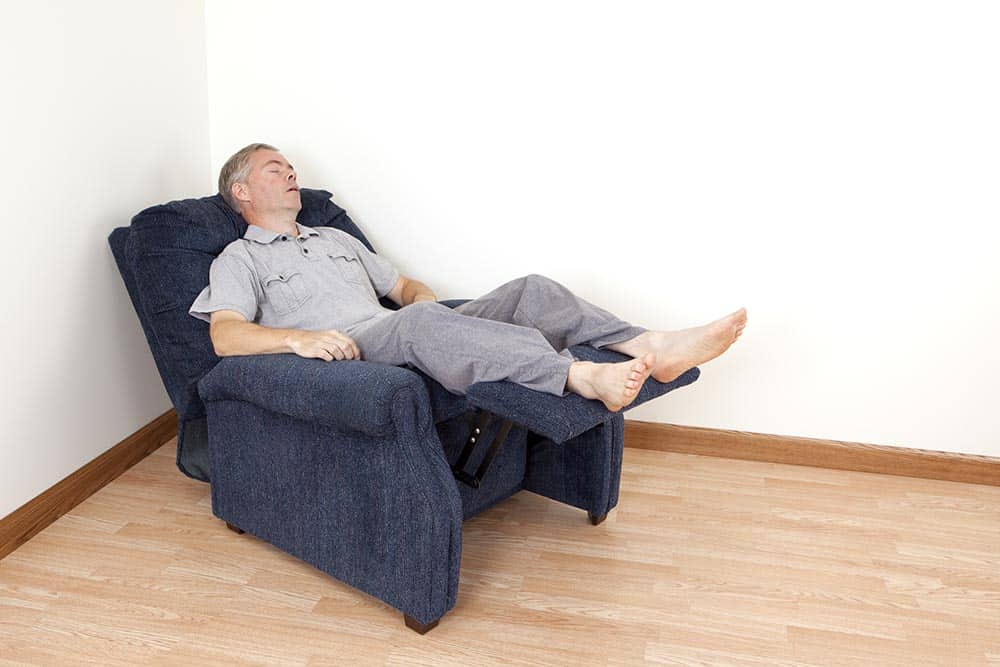A catnap, a siesta, resting your eyes…
Whatever you call it, sometimes there’s nothing quite like an afternoon nap to recharge your batteries.
But what if I told you that mid-day rest could actually be doing more harm than good?
Impossible, right?
Well, if this latest study around napping and brain health is any indicator… you may want to seriously reconsider how often you’re allowing yourself to doze off in your recliner.
Daytime Napping Linked to ALZHEIMER’S?
A new research study conducted at Brigham and Women’s Hospital has found that excessive daytime napping can lead to an increased risk of Alzheimer’s later in life.
Plus, an existing Alzheimer’s diagnosis was also tied to an increase in overall daytime napping.
In fact, researchers even described the association between too much napping and Alzheimer’s as a “vicious cycle.”
But how in the world could sleep be a detriment to your brain?
According to the researchers, it boils down to getting quality sleep at night – or lack thereof.
While there’s nothing wrong with the occasional nap (there are studies out there supporting how a short nap here and there can help boost your motor skills and memory) …
TOO MUCH dozing off during the day doesn’t make up for a lack of sleep at night – which is when your body and mind properly recharge. In other words, for optimal, long-term brain health it’s important to focus on getting your ZZZ’s at night.
Now, I get it…
It’s sometimes impossible to get a solid seven to eight hours of sleep. But there are simple steps you can take to ensure your body properly winds down and consistently gets ready for that optimal “sleep zone.”
Studies have found that simple acts like getting off screens (phones, tablets, and even TVs) one-two hours before your head hits the pillow increases your overall sleep quality.
You can also try turning off lights in hallways, bedroom lamps, or even bright night lights. The less exposure you have to artificial light, the better you’ll sleep.
But my go to for quality sleep?
It’s melatonin. Melatonin is a hormone your body produces naturally, signaling your brain it’s time to sleep. Melatonin supplements have become a popular sleeping aid, particularly in instances where the melatonin cycle is disrupted.
Melatonin supplements help reduce the time people need to fall asleep and INCREASE the total amount of quality sleep time… helping you hit that golden, seven to eight-hour mark.
If you’re thinking of taking a melatonin supplement, be sure to talk to your doctor first – especially if you have a history of sleep troubles.
Related Articles:
The Key to Weight Loss Is Not How Much You Eat…But When You Eat
This May Be the Single Healthiest Food for Your Brain
This Brain Hack Makes It Easier to Learn New Skills
Sources:
Melore, Chris. “‘Vicious cycle’ discovered between too much daytime napping and Alzheimer’s disease.” 3/17/22. https://www.studyfinds.org/vicious-cycle-napping-alzheimers/

